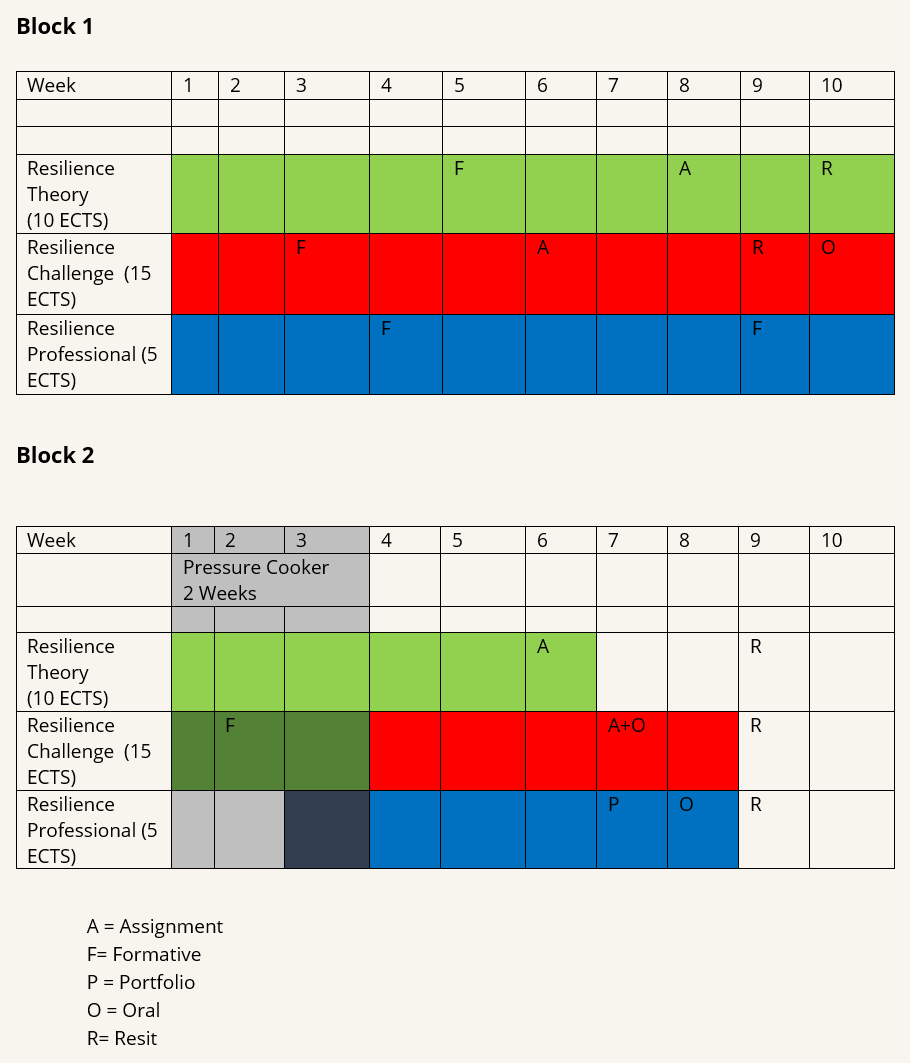Facts and figures
The programme at a glancePart of School
Programme information
What to expectAbout the programme
The programme Creating Resilient Cities focuses on developing an applicable solution for a resiliency related challenge in an urban context. During the programme you will acquire knowledge with respect to resilience theories and strategies, use this knowledge to determine your own position towards resilience and to make the connection with your own professional background.
You will use your personal position towards resilience and your professional view to contribute to a resiliency related project by comparing Rotterdam with a city abroad and by working in a multidisciplinary and international project team. A fieldtrip to this city abroad is included in the programme and a mandatory part of it.
Multiple courses support in acquiring the knowledge and skills to come up with an applicable and relevant project result. You will focus on learning all about resilience theory, collaborate in diverse teams, and how to develop your own professional development as well as co-create knowledge about resilience with a broader audience.
Methods
During this programme you learn to contribute to making cities more resilient by developing an applicable solution through comparative applied research in an international and multidisciplinary team. Several modules support you developing the necessary knowledge and skills.
The Resilience Challenge project (15 ECTS) is the heart of this programme. It challenges you to develop an applicable solution to a resilience related challenge through comparative applied research, fieldwork in Rotterdam and a pressure cooker in the partner city abroad. You will need to conduct in-depth comparative research, as well as be tested on your problem-solving skills. You will focus on a specific resilience issue and attempt to come up with the ideal solution, while making sure all relevant stakeholders are on board with your innovative design. The Resilience Theory (10 ECTS) and Resilience Professional (5 ECTS) modules, will assist you in this.
Resilience Theory introduces you to a diversity of resilience theories and strategies through lecturers, guest lectures, excursions debates and literature study. You are challenged to determine your own position within the different theoretical debates and choose direction for your research project. Additionally, you are encouraged to constantly connect resilience theories to your research project through discussions and peer review sessions.
The Resilience Professional module invites you to go a beyond business-as-usual approaches but think out-of-the-box and come up with innovative solutions. As solutions are not yet at hand, learning is key to the process of finding solutions for resiliency related challenges. During this module you will develop your capacity to use learning as a strategy for problem solving by setting the agenda for your own professional development, working on your personal learning goals and organizing knowledge exchange events. You will also be supported in how to work in multi-disciplinary and international teams. This module encourages you in using diversity within your team to increase the quality and applicability of the solution.
Type of assessments
- Presentations
- Reports
- Papers
- Oral assessment
Learning outcomes
If you have successfully completed this exchange programme then you are able to:
- Contribute to a complex resilience challenge from the perspective of your own profession;
- Apply multiple resilience theories and strategies;
- Use critical thinking and creativity while doing applied research;
- Design a solution through multidisciplinary and international collaboration;
- Steer your own learning process;
- Share results through joint learning and co-creation.
Calendar

Awarding
After completing your exchange programme at Rotterdam University of Applied Sciences, you will receive a:
- Transcript of records
- Certificate of Attendance
Subjects
An indication of the subjects you can expect
Block 1 and 2
-
Resilience Challenge (15 ECTS)
Resilience Challenge (15 ECTS)
Topics
- Resilience in practice
- Practical research
- Design research
- Comparative research
- Stakeholder management
Learning materials
Relevant articles and policy documents such as the Resilience Strategy of the Municipality of Rotterdam will made available on online learning environments of the programme.
Learning outcomes
At the end of this module you are:
- Capable of designing applicable solutions to urban resilience issues.
- Able to cooperate in a multi-disciplinary and international context.
- Able to engage and facilitate others in increasing resilience.
Type of assessment
Report and presentations
Module code
CRC02
-
Resilience Theory (10 ECTS)
Resilience Theory (10 ECTS)
Topics
- Resilience Theory
- Resilience Framework
- Rotterdam Resilience Strategy
Learning materials
Relevant articles and policy documents such as the Resilience Strategy of the Municipality of Rotterdam will made available on online learning environments of the programme.
Learning outcomes
At the end of this module you are:
- Capable of formulating a considered professional opinion on resilience issues using appropriate theories.
- Able to engage and facilitate others in increasing resilience.
Type of assessment
Written assignment
Module code
CRC01
-
Resilience Professional (5 ECTS)
Resilience Professional (5 ECTS)
Topics
- Reflection
- Co-creation
- Co-learning
Learning materials
Articles and book chapters will be made available to students on the electronic learning environment of the programme.
Learning outcomes
At the end of this module you are able to:
- Shape your own development within the context of resilience.
- To reflect on own thoughts, feelings, desires, self-image and ability to regulate yourself.
Type of assessment
Portfolio and assessment
Module code
CRC03
Practical matters
What you need to knowLocation
Where you can find us

Academieplein
Location
Where you can find us

Museumpark
Where you can find us






